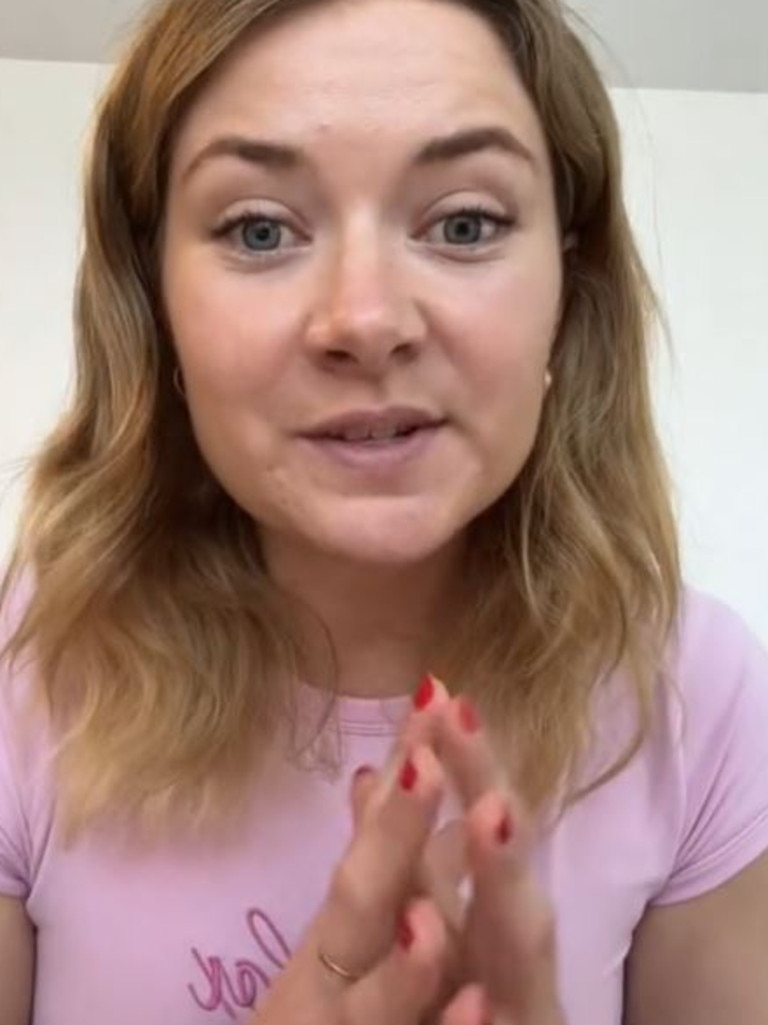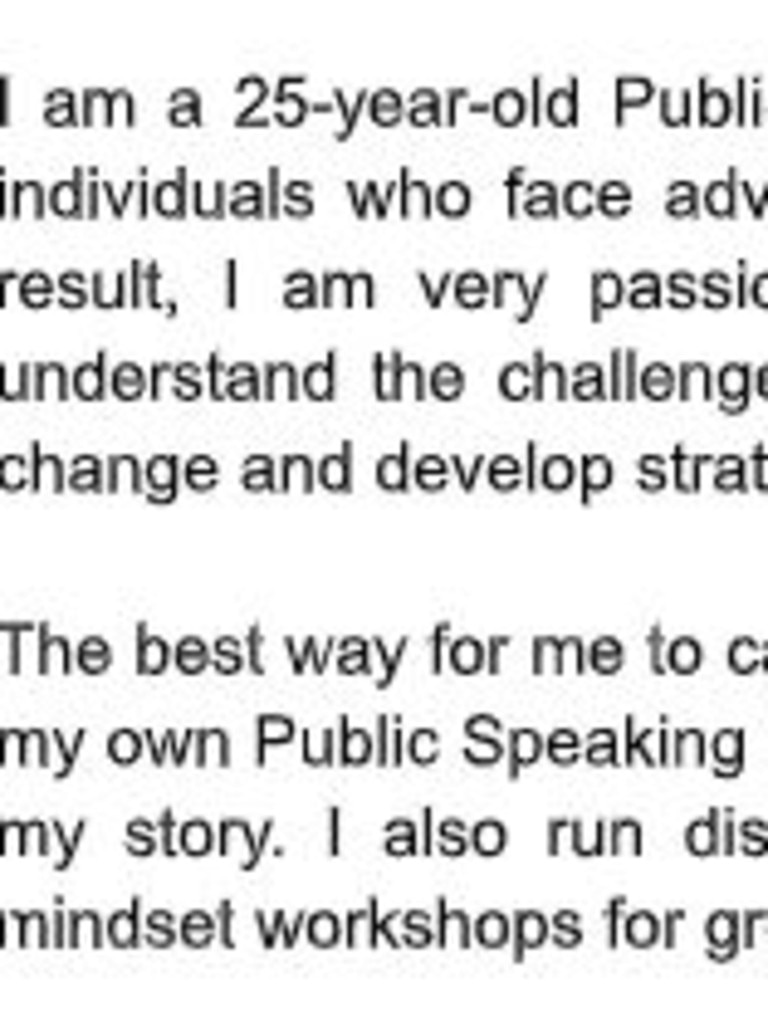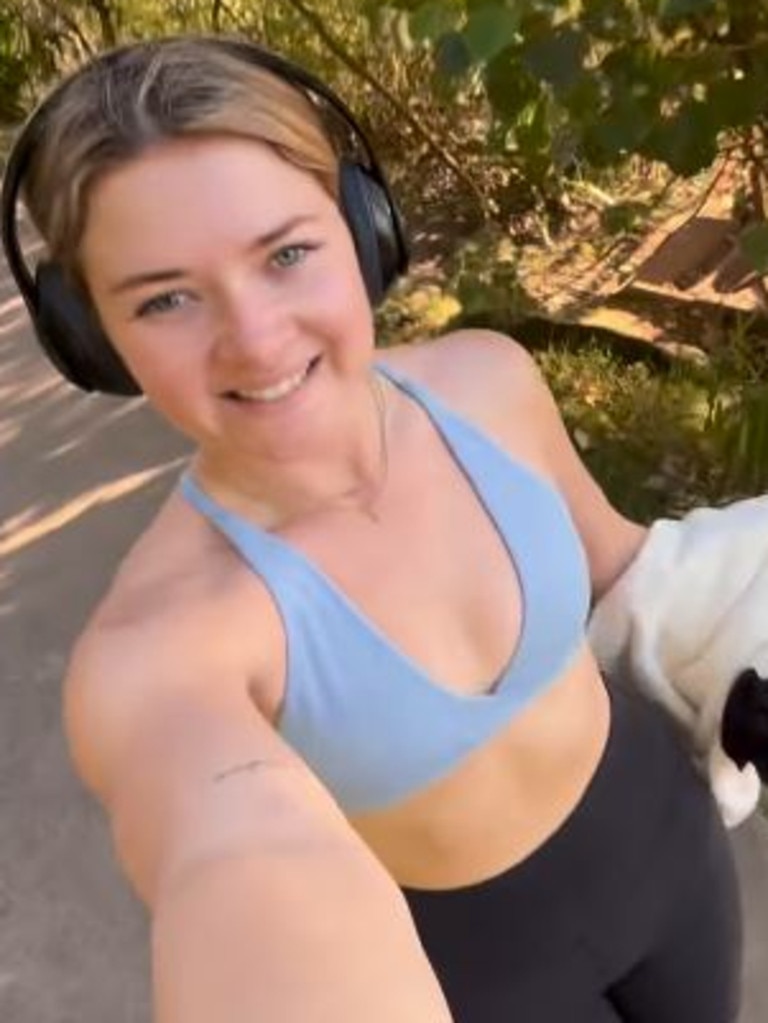25yo reveals reason she can’t get a job
A young Aussie has shared the detail in her resume that she believes is why she can’t get a job in 2024.
Chanelle Morris is finding it hard to find a job, not because she doesn’t have the experience or qualifications needed, but because she has a disability.
Ms Morris, 25, lives in regional New South Wales and has a degree in social work. She’s keen, hardworking, and determined.
She’s also constantly heartbroken but how hard she finds it to seek basic part-time employment in Australia.
The 25-year-old has only 30 per cent vision. This doesn’t stop her from playing tennis or reading and texting, but it does stop employers from hiring her.
“The amount of jobs I’ve applied for … … and if I put my vision impairment on there. I’ll never hear back,” she told news.com.au.


Ms Morris now has two resumes. On one, she will mention her disability and on another she won’t.
She only uses her disability resume when applying for a job in the disability space; otherwise, she shelves it. Not because she’s ashamed of her disability but because she’s aware of the stigma.
“If I take my disability off my resume, I always get call-backs,” she said.
Ms Morris said she will make it to the interview stage if she doesn’t include it in her resume.
If she then mentions it during an interview, hoping that once a potential employer meets her, they’ll see she’s more than capable. The same thing will happen.
“I’ll never hear back,” she explained.


Even when she gets a foot in the door, she claims to have experienced workplace discrimination.
There was the time she landed a retail job and, on her training shift, mentioned she had 30 per cent vision.
Ms Morris said she just explained that she had low vision, but it wouldn’t impact her ability to do the job.
She just wanted to flag it.
“I never got another shift,” she said.
“I mentioned it because I felt guilty and then I never got rostered on.”
She’s had an employer hire her, and then when she explained she has low vision, the boss responded by saying she wished she had never hired her.


Ms Morris said that comment “ruined” her. She stopped working for two years and lived off Centrelink.
The situation felt hopeless.
If she was upfront on her resume, she wouldn’t get the job; if she mentioned it on a training shift, she wouldn’t get shifts.
If she waited and proved she could do the job but then revealed her disability, she’d have been told the company regretted hiring her.
It was heartbreaking.
“It was so bad,” she said.
The constant rejection made her step away from even trying for a while, but now she’s finally in a good enough space to try again.
She can’t control people’s behaviour, but she’s learned to accept her disability more.
“Nowadays, it isn’t as bad because I’m more accepting of the condition, and I’m willing to fight, but a few years ago, any mention of my eyes, and I’d just fold.”
Right now, not folding means continuing to apply and put herself out there in new workplaces with the hope she isn’t held back by people’s backward “attitudes.”






